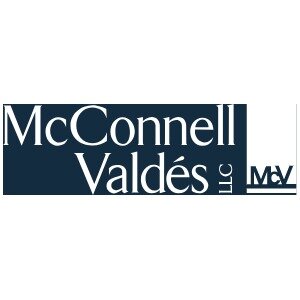Best Housing, Construction & Development Lawyers in San Juan
Share your needs with us, get contacted by law firms.
Free. Takes 2 min.
Free Guide to Hiring a Real Estate Lawyer
List of the best lawyers in San Juan, Puerto Rico
About Housing, Construction & Development Law in San Juan, Puerto Rico
San Juan, the vibrant capital of Puerto Rico, experiences ongoing housing, construction, and development activities as it continues to grow and modernize. Due to its geographic location, thriving economy, and historical architecture, San Juan presents unique challenges and opportunities in housing construction and development. The regulatory landscape governing these activities is complex, involving federal, commonwealth, and municipal laws that aim to promote sustainable growth, ensure safety, and protect the environment and cultural heritage. Understanding these laws is crucial for anyone involved in real estate, construction, or development projects in San Juan.
Why You May Need a Lawyer
Engaging in housing, construction, and development in San Juan can involve various legal complexities. Here are some common situations where you might need legal assistance:
- Disputes over property ownership or boundaries.
- Negotiating and drafting construction contracts.
- Compliance with zoning laws and obtaining necessary permits.
- Resolving issues related to construction defects or delays.
- Understanding and applying local and federal housing regulations.
- Handling real estate transactions, including purchases, sales, or leases.
- Dealing with liens and other encumbrances on property.
- Ensuring adherence to environmental laws and historical preservation regulations.
- Representation in litigation or arbitration proceedings.
- Managing landlord-tenant disputes and other rental issues.
Local Laws Overview
San Juan follows a combination of federal and commonwealth laws specific to Puerto Rico, alongside its own municipal regulations. Key aspects of the local laws include:
- Zoning Laws: Zoning codes define land use types and restrictions to ensure orderly urban development while preserving the city's character.
- Building Codes: Enforced to ensure structural safety, building codes cover design, construction, and maintenance of buildings.
- Environmental Regulations: Laws aimed at conserving San Juan's natural resources and mitigating environmental impacts of development projects.
- Historical Preservation: Special regulations protect San Juan's historic buildings and sites, requiring compliance for any alterations.
- Real Estate Transactions: Governing the legal processes for buying, selling, and leasing properties, ensuring clear title transfers.
Frequently Asked Questions
What are the steps to obtain a construction permit in San Juan?
To obtain a construction permit, you must submit detailed project plans to the permit office, undergo a review for zoning and code compliance, and pay any applicable fees. Consultation with a lawyer can help ensure a smooth process.
What do I do if I discover construction defects in my newly purchased home?
You should document the defects and consult with a lawyer who can guide you in pursuing a claim against the developer or builder for repairs or compensation.
How do zoning laws affect my planned renovation project?
Zoning laws restrict land use, so your renovation must comply with the designated use and development standards in your area. It's advisable to check local ordinances before you begin.
What actions can landlords take to evict a tenant legally in San Juan?
Landlords must follow the legal procedures set by Puerto Rican rental laws, which include issuing proper notices and potentially taking the case to court for eviction orders.
How are historical properties protected in San Juan?
Historical properties are subject to stringent regulations for alterations. Any restoration or construction on such properties requires approval from the Institute of Puerto Rican Culture.
What should I include in a construction contract?
A construction contract should detail project specifications, timelines, payment schedules, responsibilities, and procedures for resolving disputes to protect your interests.
Is environmental impact assessment necessary for all construction projects?
Not all projects require an environmental impact assessment, but it's mandated for large developments or those potentially affecting sensitive ecosystems.
Can foreign individuals or companies buy real estate in San Juan?
Yes, foreign individuals and companies can own real estate in San Juan, but it's recommended to work with a lawyer to navigate any legal intricacies involved.
How can I resolve a property line dispute with my neighbor?
Engage a surveyor to determine accurate property lines and attempt mediation or legal consultation to reach an amicable resolution.
What should I do if I suspect my contractor is violating building codes?
Address your concerns directly with the contractor and document any evidence. A lawyer can assist in taking further steps to rectify the situation or pursue legal action.
Additional Resources
For those seeking further assistance or information on housing, construction, and development in San Juan, consider reaching out to:
- Instituto de Cultura Puertorriqueña: For concerns regarding historical preservation.
- Department of Housing of Puerto Rico: For inquiries about housing policies and assistance programs.
- Puerto Rico Permit Management Office: For guidance on permits and licensing.
- Local Bar Associations: For referrals to qualified lawyers in housing and construction law.
Next Steps
If you need legal assistance in housing, construction, and development in San Juan, begin by consulting with an experienced attorney who specializes in these fields. Research and gather all relevant documentation related to your issue, and schedule an appointment to discuss your case. A legal professional can provide you with tailored guidance and representation to best suit your specific needs.
Lawzana helps you find the best lawyers and law firms in San Juan through a curated and pre-screened list of qualified legal professionals. Our platform offers rankings and detailed profiles of attorneys and law firms, allowing you to compare based on practice areas, including Housing, Construction & Development, experience, and client feedback.
Each profile includes a description of the firm's areas of practice, client reviews, team members and partners, year of establishment, spoken languages, office locations, contact information, social media presence, and any published articles or resources. Most firms on our platform speak English and are experienced in both local and international legal matters.
Get a quote from top-rated law firms in San Juan, Puerto Rico — quickly, securely, and without unnecessary hassle.
Disclaimer:
The information provided on this page is for general informational purposes only and does not constitute legal advice. While we strive to ensure the accuracy and relevance of the content, legal information may change over time, and interpretations of the law can vary. You should always consult with a qualified legal professional for advice specific to your situation.
We disclaim all liability for actions taken or not taken based on the content of this page. If you believe any information is incorrect or outdated, please contact us, and we will review and update it where appropriate.









